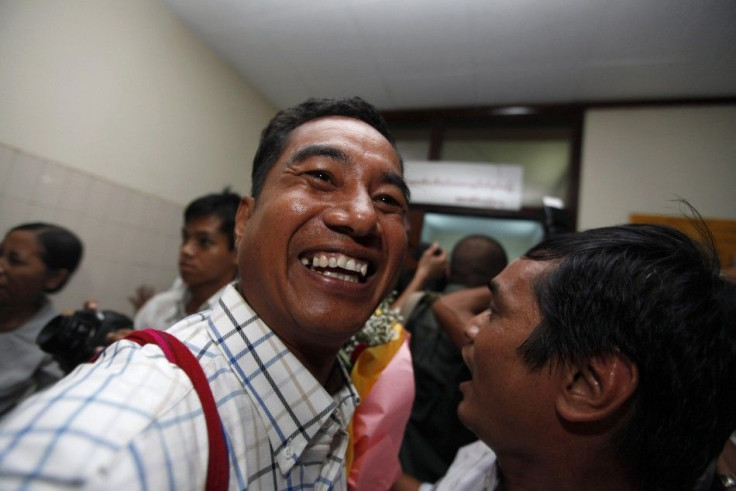U.S. Restores Full Ties With Myanmar Following Prisoner Release, Reforms

Secretary of State Hillary Clinton said on Friday that the U.S. restored diplomatic relations with Myanmar as the country's new civilian government has made rapid reforms, including the release of prominent political prisoners and a cease-fire with ethnic Karen rebels.
This is a momentous day for the diverse people of Burma, Clinton said in announcing the decision, adding that the U.S. is ready to start the process of exchanging full ambassadors.
This is a lengthy process, and it will, of course, depend on continuing progress and reform. But an American ambassador will help strengthen our efforts to support the historic and promising steps that are now unfolding.
The announcement came hours after 651 prisoners, including prominent leaders of student protests against the country's military rulers in 1988, a major uprising, were released, The New York Times reported.
U.S. President Barack Obama welcomed the moves in a statement, saying the pardon was a substantial step forward for democratic reform.
Much more remains to be done to meet the aspirations of the Burmese people, but the U.S. is committed to continuing our engagement, Obama said.
In December, Clinton became the first Secretary of State to visit Myanmar since 1955. Senate Republican Leader Mitch McConnell of Kentucky is visiting there next week.
The prisoner releases were detailed by The Irrawaddy magazine, a Thailand-based Burmese exile magazine. The leaders of the 1988 protest who were freed include Min Ko Naing, who served two long prison terms; Htay Kywe, Mya Aye, Nilar Thein and Ko Ko Gyi, the Times wrote.
United Nations Secretary General Ban Ki-moon also welcomed the release, saying it was the most significant to date, and called on the international community to respond by helping build conditions for sustaining the reform process.
The U.S. imposed a number of economic and political sanctions on Myanmar, which crippled its economy, despite rich resources including natural gas, timber and precious gems. One demand from the U.S., in order to lift those sanctions, had been the release of political prisoners.
At present, the sanctions remain, but Clinton said she instructed her State Department team to identify further steps that the United States can take in conjunction with our friends and allies to support the reforms underway. She did not mention any moves that might be taken to lift those sanctions.
© Copyright IBTimes 2025. All rights reserved.





















